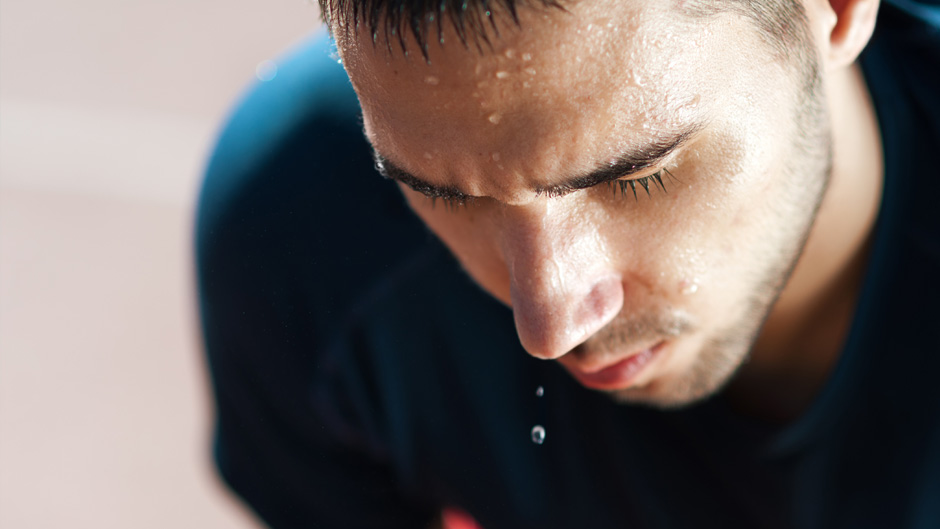It is not a polite subject to talk about. But we all sweat.
The increasingly hot temperatures that the world is experiencing have made many of us aware that hydrating is crucial. And if we spend any time outside or under the sun, we will perspire.
But why does the body sweat?
Dr. Scott Elman, assistant professor of dermatology in the Dr. Phillip Frost Department of Dermatology and Cutaneous Surgery at the University of Miami Miller School of Medicine, said that sweating is important.
“It is the way that the body protects itself by keeping a proper temperature,” he said. “As the world gets hotter and our city becomes warmer, sweating is a protective measure.”
Even those who feel they do not sweat, do so. Everyone perspires to one degree or another, according to Elman.
Although secreting water, salt, and other substances from the body is a natural phenomenon, there are people who are plagued with a condition called hyperhidrosis, or excessive sweating. This affects about 5 percent of the population, Elman said. The condition typically starts in childhood and adolescence and usually affects both sides of the body, commonly armpits, palms, and the soles of the feet.
“When it affects the quality of life and becomes a physical or mental burden, then it is time to treat it,” he said.
There are many forms of treatments. Among them:
- Using clinical strength antiperspirants that block the sweat glands. This should be applied to very dry underarms, preferably at night when this area is the driest. Deodorants are only used to mask odors but do not stop the perspiration.
- Getting Botox injections in the area every three to six months. This is effective in blocking the sweat glands.
- Using a medication called glycopyrrolate. It comes in a topical form (wipes) that can provide relief for up to three days, or in a pill form. Elman cautions his patients that the oral medication needs to be closely monitored since it can dry out most body fluids (such as tears and saliva).
Although most perspiration is natural, Elman warns that night sweats—where the person is drenched and may need to change their clothing or sheets—can be indicative of other conditions. So, it should be addressed by a physician.
Many women entering menopause are affected by hot flashes and night sweats, but these conditions will eventually subside.
It is also natural for palms to get sweaty when a person is nervous or stressed because several hormones are released that promote perspiring, Elman said. Experts agree that nervous sweating is normal; because when nervous, the body's “fight or flight” system activates. It sends a rush of energy hormones that trigger an increase in heart rate and blood flow.
When the body detects the sensation of heat, Elman points out, it will start to perspire. That is why spicy foods can make one sweaty. A high fever will also cause perspiration. No matter what triggers it, sweating is just the body trying to maintain an appropriate temperature.

